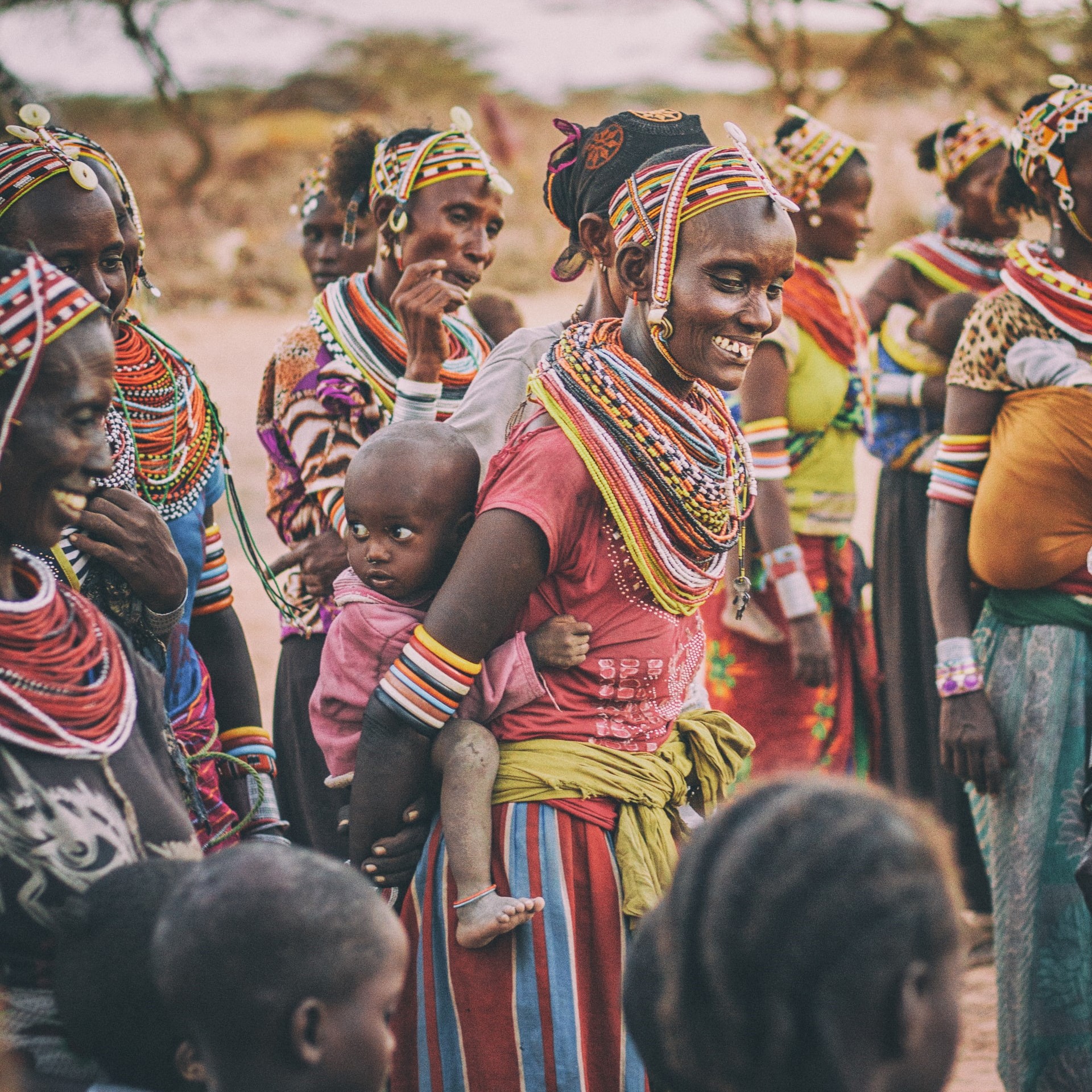Photo by Ian Macharia on Unsplash
In this post we’ll learn some basic Swahili vocabulary and grammar that you can use to describe people.
Mrembo! Beautiful!
Let’s start with some basic adjectives that you can use to describe people’s physical characteristics: mrefu (-refu) tall; mfupi (-fupi) short; kijana, mdogo (-dogo) -mchanga (-changa) young; mzee (-zee) old; mnene (-nene) fat; mkonde (-konde) thin; mrembo (-rembo) beautiful; sura mbaya (-baya) ugly. Let’s see some examples:
- Mwanamke ni mrefu/ mkonde.
The woman is tall/ thin. - Wanawake ni warefu/ wakonde.
The women are tall/thin.
- Ni mwanamke mrefu. Mwanamke mrefu ni dada yangu.
She is a tall woman. The tall woman is my sister. - Mwanaume ni mfupi/ mnene.
The man is short/ fat. - Ni mwanaume mfupi. Mwanaume mfupi ndiye mwalimu.
He is a short man. The short man is the teacher. - Babu yangu/bibi yangu ni mzee.
My grandfather/My grandmother is old. - Mvulana ni mchanga.
The boy is young. - Tuna mvulana mchanga.
We have a young (little) son.
GRAMMAR TIP!
Did you notice that adjectives in Swahili take agreement prefixes that match the class of the noun that they describe? For instance, you saw in the list that mrefu means tall. That’s actually the singular of the A-Wa class form. Just as you have mwanamke/wanawake (woman/women), you’ll have two forms of the adjective: mrefu/warefu:
- mwanamke mrefu a tall woman
- wanawake warefu tall women
It’s best to think of the adjective as –refu, because when it’s used, it can be mrefu, warefu, kirefu, virefu, mirefu, and so on.
- mti mrefu a tall tree
- miti mirefu tall trees
- kitabu kirefu a long book
- vitabu virefu long books
- basi refu a long bus
- mabasi marefu long buses
For much more information on Swahili noun classes and adjective agreement, check out this post, and the series of posts on different noun classes that it links to.
Furaha au Huzuni? Happy or Sad?
Now let’s see a few more adjectives that describe people’s moods or emotions or other non-physical characteristics: furaha happy; huzuni sad; mwenye akili intelligent (lit, “has intelligence”); mjinga foolish; inavutia interesting; maarufu popular; michezo sporty, athletic; mzembe lazy; nguvu strong; dhaifu weak; jasiri brave; aibu shy; mzungumzaji talkative; kimya quiet; aliyeoa married; hajaolewa single; urafiki friendly, nice; wasio na urafiki unfriendly, dhilifu mean.
- Mwanamke ni mwenye akili.
The woman is intelligent. - Wanawake ni wenye akili.
The women are intelligent. - Mwanaume ana nguvu.
The man is strong. - Ni mwanaume mwenye nguvu.
He is a strong man. - Ni mwanamke mwenye nguvu.
She is a strong woman. - Wanaume ni wenye nguvu.
The men are strong. - Dada yangu ni mpenda marafiki/dhilifu.
My sister is friendly/ unfriendly. - Kaka yangu ni mpenda marafiki/asiyependa marafiki.
My brother is friendly/mean. - Msichana ni mwenye aibu.
The girl is shy. - Binti zetu ni wenye aibu.
Our daughters are shy. - Uko na furaha au huzuni?
Are you happy or sad? - Mwalimu wetu anavutia.
Our teacher is interesting. - Ni mwimbaji maarufu.
She’s a popular singer/musician. - Askari ni jasiri.
The police officer is brave.
Do you want to learn Swahili?
Check out our other posts on Swahili language, culture, and more. And if you’re looking for convenient and affordable live Swahili lessons with a real teacher, check out The Language Garage Swahili. Our lessons are given online in a virtual classroom, so it doesn’t matter where you live or work. We can come to you. And we have flexible options, with a free trial so that you can decide if there’s a fit. Check us out!





